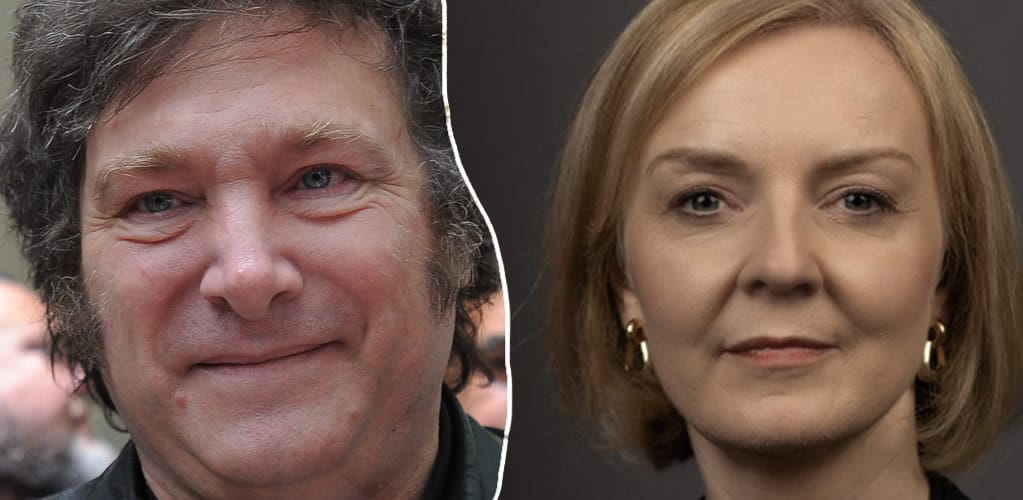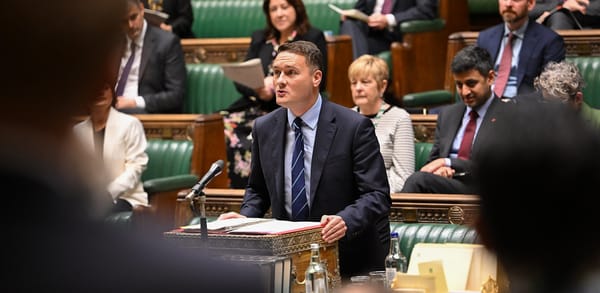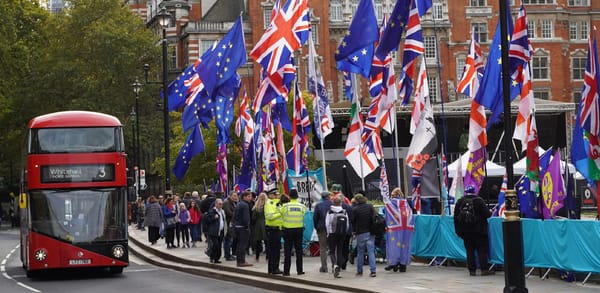Is Javier Milei Argentina’s Liz Truss?
Javier Milei, Argentina’s president-elect, resembles Britain’s short-serving PM Liz Truss in their shared goals of low taxes and a reduced state. Both faced economic challenges, raising concerns about the potential consequences of their radical policies.

Javier Milei, Argentina’s president-elect, resembles Britain’s short-serving PM Liz Truss in their shared goals of low taxes and a reduced state. Both faced economic challenges, raising concerns about the potential consequences of their radical policies.
I t’s an unfair comparison — Argentina’s president-elect Javier Milei and Britain’s shortest-serving prime minister Liz Truss.
Ms Truss was not elected to the highest office of state in a general election. Mr Milei has won a substantial 56% of the vote in the November 19 presidential run-off election. It’s the widest margin since the 1983 return of democracy to Argentina after seven years of dictatorship.
And yet, Mr Milei does bring to mind Ms Truss, for a simple reason: they seem to want some of the same things, and it could all go frightfully wrong.
Both want a growth-focused agenda that embraces low taxes. Both want to shrink the state.
These are laudable ambitions, but they call for good judgement, a measured tread and crucially, common sense. Especially, when times are bad as is the case with Argentina, South America’s second-biggest country.
And as happened with Truss’s Britain because she seemed to have a common sense bypass and nearly crashed the economy.
So what’s in prospect for Mr Milei? Argentina’s outlook is doleful, with inflation running at 140%, falling agricultural production, two out of five people living in poverty and the peso losing 90% of its value since 2019.
Mr Milei’s signature idea is dollarisation, abolition of the central bank, wholesale privatisation as well as hard-pruning the state. That means getting rid of several ministries and welfare provisions and abolishing the peso. But a form of this policy was tried in the early 1990s with the peso-to-dollar exchange rate fixed at one-is-to-one. After roughly 10 years of that, a period marked by deep recession and street protests against the pain of economic experimentation, the policy was abandoned. In 2002, Argentina had five presidents in the span of a fortnight.
That does not sound dissimilar — albeit, rather more extreme — than Britain in the late summer and autumn of 2022. Then, three prime ministers came and went through the new revolving door they appeared to have installed at 10 Downing Street. Of the three, Ms Truss was in office for the shortest period — in fact, she holds that record in all of British history. This was mainly because of her determination to employ what I have previously called a robotic libertarianism, uncapping banker bonuses, and handing tax cuts to the prosperous with gay abandon and employing a laser-focus on cost cuts rather than investment.
In fact, Ms Truss’s opposition to the nanny state meant her wing of the Conservative Party even thought it common sense to rescind a sugar tax on food and drinks and seemed to favour the position that environmental protection was woke and rather silly. At the time, some analysts said the Truss approach seemed almost as antediluvian as the era of opposition to compulsory seat belts in cars and public smoking bans.
If Mr Milei takes a more common sense approach to growth, he will, of course, not be Argentina’s Truss. Right now, that’s not immediately apparent.

Sources:
▪ Text: This piece was first published in Medium and re-published in PMP Magazine on 25 November 2023. | The author writes in a personal capacity.
▪ Cover: Mixed of Dreamstime/Fabian Alberto De Ciria & Flickr/Simon Dawson / No 10 Downing Street / Open Government Licence v3.0. (Licensed under a Creative Commons Attribution-ShareAlike 4.0 International License.)








[Read our Comments Guidelines]